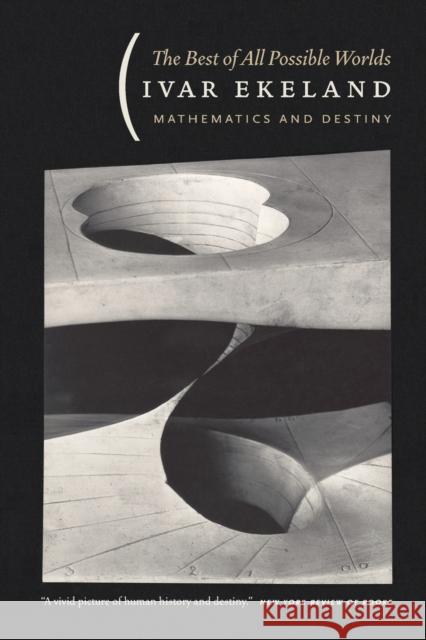The Best of All Possible Worlds: Mathematics and Destiny » książka
The Best of All Possible Worlds: Mathematics and Destiny
ISBN-13: 9780226199955 / Angielski / Miękka / 2007 / 208 str.
Optimists believe this is the best of all possible worlds. And pessimists fear that might really be the case. But what "is" the best of all possible worlds? How do we define it? This question has preoccupied philosophers and theologians for ages, but there was a time, during the seventeenth and eighteenth centuries, when scientists and mathematicians felt they could provide the answer.
This book is their story. Ivar Ekeland here takes the reader on a journey through scientific attempts to envision the best of all possible worlds. He begins with the French physicist Maupertuis, whose least-action principle, Ekeland shows, was a pivotal breakthrough in mathematics, because it was the first expression of the concept of "optimization," or the creation of systems that are the most efficient or functional.
Tracing the profound impact of optimization and the unexpected ways in which it has influenced the study of mathematics, biology, economics, and even politics, Ekeland reveals throughout how the idea has driven some of our greatest intellectual breakthroughs. The result is a dazzling display of erudition one that will be essential reading for popular-science buffs and historians of science alike.
"The deity of Liebniz and Maupertuis can only make action stationary; to us remains the challenge to make the world as good as possible. . . .We can neither evade such problems nor address them without science. Ekeland's admirable account gives us the tools to consider these important questions in greater depth." Peter Pesic, "Times Literary Supplement"
Ekeland] gives us a vivid picture of human history and destiny. . . . Mathematics appears as a unifying principle for history. Ekeland moves easily from mathematics to physics, biology, ethics, and philosophy. Freeman Dyson, "New York"" Review of Books""











